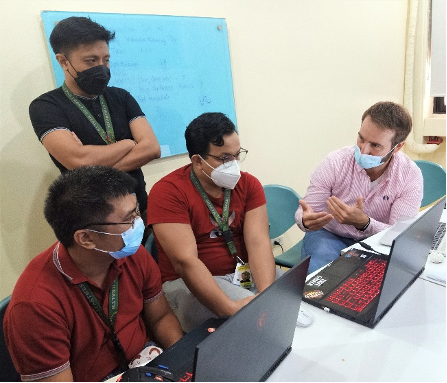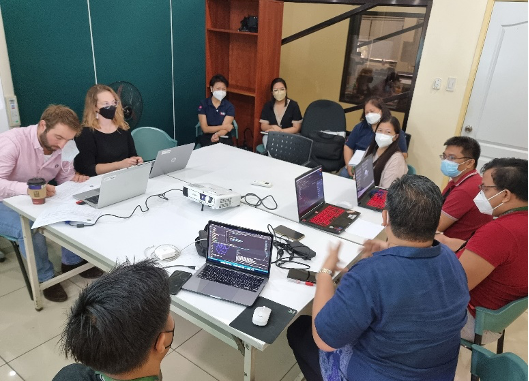ASCENT Philippines and the Department of Health (DOH) Knowledge Management and Information Technology Service (KMITS) are enhancing the capability of the ASCENT adherence platform (also referred to as the Everwell Hub) by making the platform and the DOH Integrated Tuberculosis Information System (ITIS) interoperable. Their interoperability will lead to a more robust digital adherence technology (DAT) intervention in the Philippines even after the completion of the ASCENT project in December 2022.
The value of fortifying the adherence platform was underscored in a meeting of KMITS and the ASCENT Philippines team led by Dr. Andre Villanueva and backstopped by project director Kristian van Kalmthout and digital technical officer Rachel Powers. In the meeting, Dr. Ma. Clarice Salido of the DOH Disease Prevention and Control Bureau, Infectious Diseases Division/Adult Health Division, recognized how the platform will make the remote monitoring of treatment adherence easier and more efficient for health care workers (HCWs). Thanks to digital monitoring, made possible by the use of DATs, it will not longer be required for patients to visit the clinic every day for directly observed treatment (DOT). This lends to more patient-centered care, one of the four pillars of the WHO End TB Strategy. Additionally, pushing Everwell Hub registration data to ITIS through interoperability will reduce the HCWs’ burden of reencoding the data in ITIS, optimizing the link between the two electronic systems.
With the DOH partners recognizing the benefits of a strong, interoperable adherence platform, Dr. Andre Villanueva proposed to build the capacity of KMITS to manage the ASCENT adherence platform. KMITS was identified as the entity most capable of providing technical support to health facilities that will continue or start to implement DAT at the end of the ASCENT project. This was acknowledged by Cherrie Esteban, head of KMITS Systems and Software Engineering Division. Additionally, Rachel Powers pointed out the importance of strengthening the relationship between KMITS and Everwell and outlined the phased approach that can be used to iteratively build the linkages between not just the two systems but also for the support team capacity.
ASCENT and KMITS will continue to work on the two systems’ interoperability in the coming months.

Here you see Kristian van Kalmthout, ASCENT project director, explaining details of ITIS-Everwell Hub interoperability to Andro Gutierrez, KMITS senior systems analyst (leftmost), and his team.
Photo credit: SMasulit/KNCV Tuberculosis Foundation
The Unitaid-funded and supported ASCENT project is led by KNCV Tuberculosis Foundation in partnership with The Aurum Institute, London School of Hygiene & Tropical Medicine, and PATH.
